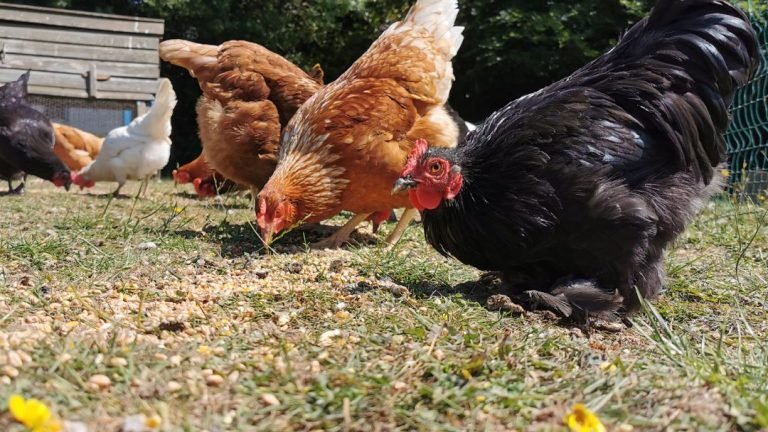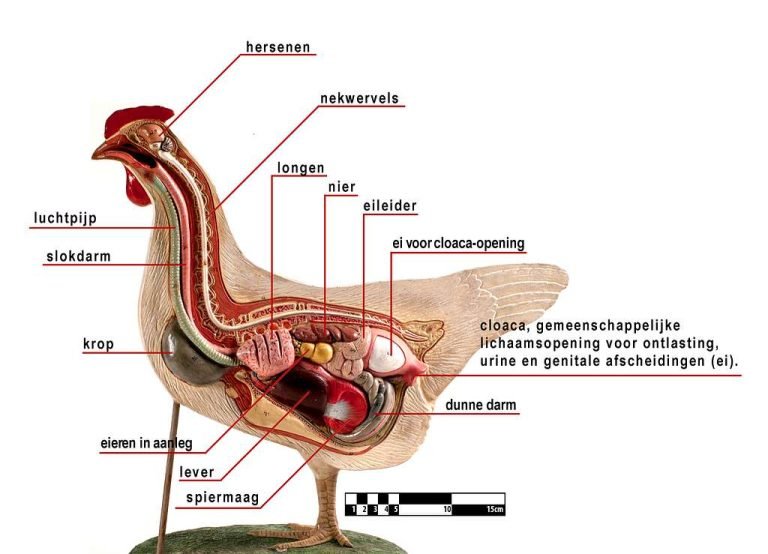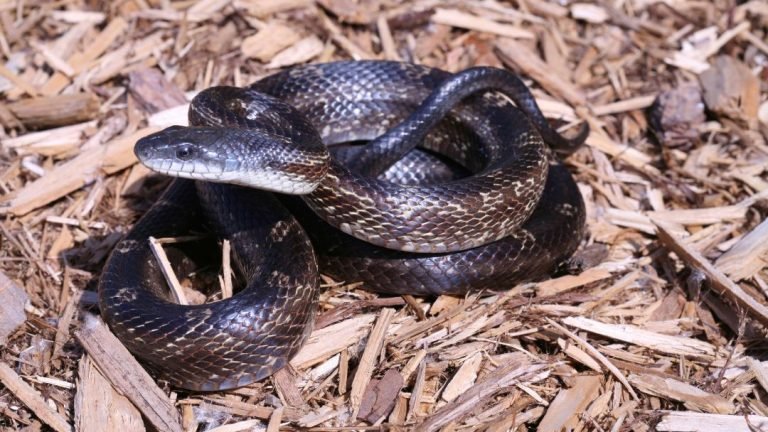The most common chicken predators are foxes, raccoons, coyotes, and snakes. Protecting your chickens from these predators is crucial for their safety and well-being.
Keeping chickens can be a rewarding experience, providing fresh eggs and a source of entertainment. However, it also comes with the responsibility of protecting your flock from potential threats. Chicken predators pose a constant risk, and understanding the most common ones is vital for ensuring the safety and survival of your birds.
By being aware of these predators and implementing effective measures to deter them, you can create a secure environment for your chickens to thrive. We will explore the most common chicken predators and provide insights on how to safeguard your precious flock.
Understanding The Threats
When it comes to raising chickens, it’s crucial to be aware of the potential threats they face from predators. Understanding the predators in your area, their behavior, and how they can attack your chickens is the first step towards ensuring their safety.
Identifying Predators In Your Area
Each region has its own set of predators that can pose a threat to your feathered friends. By identifying the predators in your area, you can take necessary precautions to protect your chickens. Here are a few common predators you might find:
| Predator | Description |
|---|---|
| Bears | These powerful creatures can break into coops and kill chickens. They are most active during the night. |
| Raccoons | With their nimble paws, raccoons can easily open latches and wreak havoc on a chicken coop. |
| Foxes | Foxes are known for digging under fences to access chicken coops. They are cunning hunters and pose a significant threat to chickens. |
Common Predators That Pose A Danger To Chickens
- Snakes: Venomous snakes, like rattlesnakes, can infiltrate coops and prey on chickens. Keep an eye out for any snake activity around your poultry.
- Bobcats: These wildcats are skillful climbers and can jump into chicken enclosures. Bobcats are known to attack at dusk or dawn.
- Coyotes: With their keen sense of smell and agility, coyotes can gain access to coops and kill chickens swiftly. They are most active during the night.
Recognizing Patterns Of Attacks
By being observant of patterns of attacks, you can spot potential vulnerabilities and take proactive measures. Keep a lookout for:
- Unusual disturbances around the coop, such as signs of forced entry.
- Feathers or remains of chickens scattered in the vicinity.
- Tracks or footprints that don’t belong to chickens.
Furthermore, it’s essential to secure your chicken coop by reinforcing doors, windows, and fences, and by installing sturdy locks. Regularly inspect the perimeter and repair any damaged areas that could grant access to predators.
Remember, prevention is the key to protecting your chickens from predators. By understanding the threats they face, you can create a safe environment for your feathered friends to thrive in.
Reinforcing Your Coop And Run
Keeping your chickens safe from predators is a top priority for any poultry owner. While taking preventive measures is crucial, reinforcing your coop and run is the key to keeping those pesky predators out. By reassessing the current security measures in place, fortifying the coop with sturdy materials, installing predator-proof fencing, securing windows and openings, and utilizing secure locks and latches, you can create a fortress that will protect your feathered friends from the most common chicken predators.
Assessing The Current Security Measures In Place
Before you start reinforcing your coop and run, it’s important to evaluate the current security measures you have in place. Inspect the existing structures for any weak spots, such as gaps, holes, or loose panels, where predators could potentially gain access. Take note of any areas that may need immediate attention to ensure the safety of your chickens.
Fortifying The Coop With Sturdy Materials
One of the most effective ways to reinforce your coop is by fortifying it with sturdy materials. Replace any weak or rotten wood with high-quality lumber, ensuring that the coop is solid and strong. Consider using reinforced wire mesh or hardware cloth to reinforce windows, vents, and other openings. Sturdy materials not only provide better protection against predators, but they also contribute to the overall longevity of your coop.
Installing Predator-proof Fencing
Predator-proof fencing is a crucial addition to your coop and run. It acts as the first line of defense against predators that may attempt to dig their way in. Install sturdy fencing around the perimeter of the coop and run, making sure it extends at least 12 inches below ground to prevent predators from burrowing underneath. Use materials such as welded wire mesh or hardware cloth with small openings to prevent even the smallest predators from squeezing through.
Securing Windows And Openings
Windows and openings are vulnerable areas that predators can exploit to gain access to your chickens. Secure all windows and openings with predator-resistant materials such as hardware cloth or reinforced wire mesh. Make sure these materials are securely fastened to prevent any unwanted entry. Regularly inspect and maintain these areas to ensure that the seal remains intact and prevents predators from prying their way in.
Utilizing Secure Locks And Latches
No matter how secure your coop and run are, it’s essential to utilize secure locks and latches to keep predators out. Opt for quality padlocks or heavy-duty latches that are resistant to tampering. Reinforce entry points such as doors and gates with additional bolts or locks for added security. Always check and double-check that all locks and latches are properly secured to minimize the risk of predators gaining access to your chickens.
Implementing Effective Deterrents
When it comes to protecting your chicken flock from predators, it’s essential to implement effective deterrents that can keep them safe. By taking preventative measures and utilizing proven strategies, you can stave off potential attacks and maintain the security of your coop. In this article, we’ll explore some practical methods that can help you keep predators at bay.
Using Motion-activated Lighting To Deter Nocturnal Predators
One effective way to discourage nocturnal predators from approaching your chicken coop is by installing motion-activated lighting. These intelligent lights detect any movement within their range and instantly illuminate the area, often startling and scaring away predators. By casting a bright light, they disrupt the nocturnal activities of predators such as raccoons, foxes, and coyotes, creating an unpleasant and inhospitable environment for them. Installing motion-activated lighting around your coop perimeter can serve as an effective deterrent against these nocturnal threats.
Utilizing Scare Tactics Such As Predator Decoys
Predator decoys can be a simple yet clever method to ward off potential predators. By placing realistic decoys of common chicken predators, such as hawks or owls, in and around your chicken coop, you can create the illusion that a threat is present. Predators are naturally cautious and will think twice before approaching an area that appears to be inhabited by a larger predator. Don’t forget to move the decoys periodically to maintain their efficacy, as real predators would rarely stay stationary for long. Adding this scare tactic to your defense strategy can help protect your flock from feral or airborne predators.
Setting Up Predator-proof Barriers Around The Coop
Creating predator-proof barriers around the chicken coop is an essential step in keeping your flock safe. Start by inspecting the coop for any potential entry points and reinforce them with sturdy materials, such as hardware cloth or welded wire mesh. Ensure that the wire extends at least 12 inches underground to prevent predators from digging their way in. Install locks on doors and windows to further strengthen the barriers. Additionally, consider installing an apron of wire mesh around the perimeter of the coop. This apron, buried a few inches into the ground and flared outward, acts as an obstacle to predators trying to dig their way into the coop. By implementing these predator-proof barriers, you can significantly reduce the risk of successful predator attacks.
Encouraging The Presence Of Guard Animals Like Dogs Or Geese
Guard animals can be a valuable asset when it comes to protecting your chickens. Dogs, in particular, are known for their protective nature and can be trained to keep predators at bay. They will deter potential threats by their presence alone, as many predators are instinctively wary of being confronted by a dog. Geese, on the other hand, are naturally vigilant and can sound the alarm at the sight or approach of predators. Having a pair of geese patrolling your chicken area can greatly enhance your flock’s security. Introducing these guard animals to your flock can provide an additional layer of protection and grant you peace of mind knowing that your chickens have stalwart defenders.
In conclusion, implementing effective deterrents is crucial for safeguarding your chicken flock from predators. By utilizing motion-activated lighting, scare tactics, predator-proof barriers, and guard animals, you can significantly reduce the risk of predator attacks. Taking these preventative measures will not only create a safer environment for your chickens but also provide you with the peace of mind that your flock is well protected.
Applying Natural Predation Prevention Techniques
Implementing Natural Tactics Like Habitat Modification
Implementing natural tactics like habitat modification can significantly reduce the risk of chicken predation. One effective method is to create a predator-proof coop and run area for your chickens. This means using sturdy materials like hardware cloth instead of chicken wire and burying the wire at least a foot underground to prevent digging predators from entering.
In addition, consider providing dense vegetation or natural cover around the coop and run area to make it less accessible to predators. This not only creates a barrier but also provides a hiding place for chickens to seek shelter when threatened.
Using Companion Plants To Deter Predators
Companion planting is a technique often employed in gardening, but it can also be useful in deterring predators from chickens. By strategically planting certain plants around the coop and run area, you can create an environment that predators find unappealing.
| Companion Plants | Benefits |
|---|---|
| Marigolds | The strong odor of marigolds repels many common predators like raccoons and possums. |
| Lavender | The scent of lavender can help discourage rodents and some avian predators like hawks and owls. |
| Mint | Mint plants emit a pungent odor that deters rodents and even snakes. |
Applying Odor Deterrents To Discourage Predators
Using natural odor deterrents can be an effective way to discourage predators from approaching your chicken coop. These scents are unappealing to predators and can make them think twice about attempting an attack.
- Peppermint oil: The strong smell of peppermint oil can help deter rodents, snakes, and some mammals.
- Garlic: Sprinkling garlic powder or planting garlic around the coop can repel a variety of predators.
- Essential oils: Oils like citronella, rosemary, and thyme have strong scents that predators find unpleasant.
Encouraging Natural Predators To Control Chicken Predators
Instead of solely focusing on preventing predators from reaching your chickens, you can take a proactive approach by encouraging natural predators to control chicken predators. Certain animals, such as snakes and raptors, naturally target smaller predators that pose a threat to chickens.
Note: Ensure that the natural predators you’re encouraging are not a threat to your chickens themselves. For example, it’s important to discourage raptors like hawks and owls from targeting your chickens while still encouraging them to hunt smaller predators.
Maintaining Vigilance And Monitoring
Keeping your chickens safe from predators requires constant vigilance and monitoring. By regularly checking the coop and run for signs of predators, installing security cameras to monitor the area, monitoring your chickens’ behavior for signs of distress or predator attacks, and seeking professional assistance if predator problems persist, you can ensure the safety of your flock.
Regularly Checking The Coop And Run For Signs Of Predators
One of the most effective ways to protect your chickens is through regular checks of the coop and run for any signs of predators. Look out for claw marks, droppings, feathers, or any other visible signs indicating the presence of predators. Additionally, inspect the perimeter fencing and ensure there are no holes or gaps that could allow predators to enter. By conducting routine checks, you can identify and address potential vulnerabilities before they become serious threats.
Installing Security Cameras To Monitor The Area
An advanced measure to enhance your chicken’s safety is the installation of security cameras. By strategically placing cameras around your coop and run, you can continuously monitor any suspicious activity. Security cameras act as a deterrent to potential predators, giving you the ability to identify and take appropriate action to protect your chickens.
Monitoring The Behavior Of Chickens For Signs Of Distress Or Predator Attacks
Observing the behavior of your chickens is crucial in identifying signs of distress or predator attacks. Pay close attention to changes in their normal routine, agitation, or signs of injury. If you notice any unusual behavior, investigate the cause immediately. Early detection can help prevent predator attacks or limit potential harm to your flock.
Seeking Professional Assistance If Predator Problems Persist
If you find that predator problems persist despite your efforts, it may be necessary to seek professional assistance. A professional can evaluate your coop and run setup, offer expert advice on predator prevention strategies, and assist in implementing effective measures to protect your chickens. Don’t hesitate to reach out for professional help to ensure the safety and well-being of your flock.
Conclusion
Overall, it is important for chicken owners to be aware of the potential predators that can harm their flock. Whether it’s raccoons, foxes, or hawks, taking preventative measures such as building secure coops and providing adequate fencing can greatly reduce the risk of attacks.
By being proactive and staying informed about the common chicken predators, you can ensure the safety and well-being of your feathered friends.






